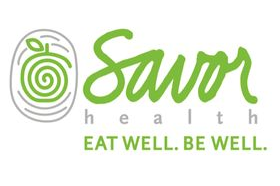The use of dietary supplements during cancer treatment can be a confusing topic for lung cancer patients. With conflicting information on the Internet, as well as advice from family members and friends, it can be hard for patients to decipher what is beneficial for them and what could be harmful. Many supplements have misleading claims, as well as hard to pronounce ingredients that can make it impossible to know what you are actually getting.
Since many supplements can interfere with cancer treatments, it is crucial to talk to your medical oncologist when considering a dietary supplement. Below we will discuss popular supplements and whether they are safe for lung cancer patients to take during treatment.
High-Dose Antioxidant Supplements
Since antioxidants are known to be healthy, most people would think that taking antioxidant supplements, such as vitamin C or beta-carotene, would be even more beneficial. Unfortunately, that is not the case. Some studies have found that taking high-dose vitamin C while on chemotherapy could cause the antioxidant to hinder the effectiveness of the chemotherapy. Beta-carotene supplements are also not recommended, especially for the smoking population. Research has shown that smokers who take beta-carotene supplements have a significantly higher risk of developing lung cancer than those who do not take the supplement.
Instead of taking an antioxidant supplement, choose fruits and vegetables, like oranges, berries, and broccoli, to get cancer-fighting antioxidants at a safe level and in their most absorbable, natural form. While whole produce is best, fruit and vegetable smoothies are an alternative to get extra calories and antioxidants.
Powdered Vegetable Supplements
While powdered vegetable drinks and supplements are convenient and contain forms of normal vegetables, they may contain other ingredients that could interfere with your treatments or medications. Similar to the antioxidant supplements mentioned above, powdered vegetables contain a much higher dose of antioxidants, which can interfere with your IV and oral chemotherapy medications. Instead of these alternatives, choose a variety of vegetables and find ways to introduce new kinds into your diet. Adding spinach and kale to your smoothies, or carrots and zucchini to your baked goods, are examples of unique ways to fit in your daily servings of vegetables.
Nutritional Drinks
Nutrition drinks are extremely popular among cancer patients due to their ease and convenience. For most patients, these drinks are a great option for a snack between meals or before bedtime. While most on the market provide calories and protein, it is important to look at the ingredient list. Organic and “whole food” nutrition drinks are a better option than those full of artificial ingredients. It is also a good idea to mention any nutritional drink to your medical oncologist and oncology dietitian to make sure that it is safe for you.
Multivitamins
Unlike high-dose antioxidant supplements, the vitamins and minerals in most multivitamins are low dose or a standard regular daily dose. While food is always a better option, a regular multivitamin can help provide your body with necessary micronutrients if experiencing a poor appetite or inability to consume enough food. As always, be sure to discuss the use of a daily multivitamin with your physician or dietitian prior to use to ensure that it is safe and that you are choosing a reputable brand.
The most important thing to remember is that a supplement is never a replacement for a healthy, well-balanced diet. Choosing a diet rich in fruits, vegetables, whole grains, lean meats, and other “whole” foods will provide you with the vitamins, minerals, and antioxidants you need in a form that is most absorbable by your body. If you are concerned about your diet or feel that you may need a vitamin supplement, speak to your medical team and oncology dietitian so that they can help you to decipher what is best for you.
~~~
Looking for instant and personalized nutrition advice? Check out Ina®, Your Personal Intelligent Nutrition Assistant. You can communicate with Ina® 24/7 to receive clinically appropriate and “on demand” nutrition support and guidance. She’ll respond with personalized nutrition tips, recipe, and answers to your questions—no phone calls or appointments necessary.
Visit LUNGevity’s website to learn more about Ina®. Click here to sign-up for Ina®.
 Savor Health is a provider of personalized nutrition solutions designed exclusively for cancer patients based on evidence-based science and clinical best practices and provided by a team of oncology-credentialed registered dietitians.
Savor Health is a provider of personalized nutrition solutions designed exclusively for cancer patients based on evidence-based science and clinical best practices and provided by a team of oncology-credentialed registered dietitians.
Submit your questions here and the experts at Savor Health may answer it in an upcoming blog!
